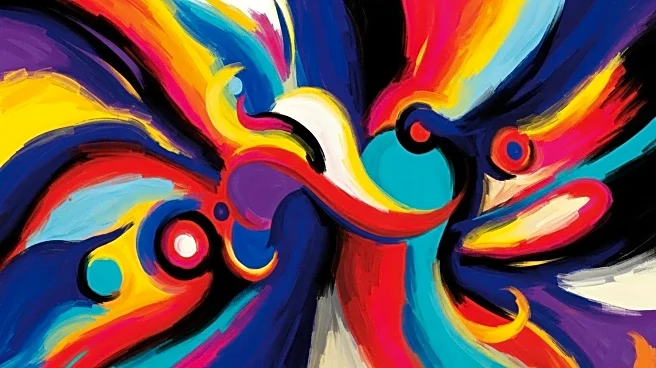What's Happening?
Creative Australia has awarded Lebanese Australian artist Khaled Sabsabi a $100,000 grant after a controversial decision earlier this year to drop him as Australia's representative for the Venice Biennale. Sabsabi, known for his provocative works, was initially removed due to concerns over past pieces, including one depicting Hassan Nasrallah, the former leader of Hezbollah, and allegations of favoring boycotts of Israel. The decision led to significant backlash within the Australian art community, prompting calls for a reevaluation of Creative Australia's practices. Following the controversy, senior leaders at Creative Australia departed, and Monash University postponed a planned exhibition by Sabsabi, which was later reinstated. The grant will support Sabsabi's solo show at the Samstag Museum of Art in Adelaide in 2027, featuring new work set to debut at the Biennale's Australia Pavilion next year.
Why It's Important?
The grant and reinstatement of Khaled Sabsabi highlight the ongoing debate over artistic freedom and censorship within the Australian art community. The initial decision to drop Sabsabi raised concerns about the influence of political considerations on artistic representation, sparking discussions on the balance between public support and artistic expression. The controversy underscores the challenges faced by artists whose work engages with politically sensitive topics, and the subsequent grant and exhibition offer a resolution to the dispute. This development may influence future decisions by art institutions regarding the selection and support of artists, potentially impacting the diversity and scope of artistic representation in international forums like the Venice Biennale.
What's Next?
With the grant secured, Khaled Sabsabi is set to prepare for his solo exhibition at the Samstag Museum of Art in 2027, as well as his participation in the Venice Biennale's Australia Pavilion next year. The reinstatement and financial support may encourage other artists to pursue politically charged themes, knowing that institutional backing can be regained despite initial setbacks. Creative Australia may face continued scrutiny over its decision-making processes, potentially leading to reforms that ensure greater transparency and support for diverse artistic voices. The art community will likely monitor how these developments influence future selections for international exhibitions.
Beyond the Headlines
The controversy surrounding Khaled Sabsabi's work raises broader questions about the role of art in political discourse and the responsibilities of cultural institutions in supporting artists who challenge societal norms. The situation highlights the ethical considerations involved in curating national representations at international events, where political sensitivities can impact artistic choices. This case may prompt a reevaluation of how art is used as a tool for political expression and the extent to which artists can engage with contentious issues without facing institutional backlash.











